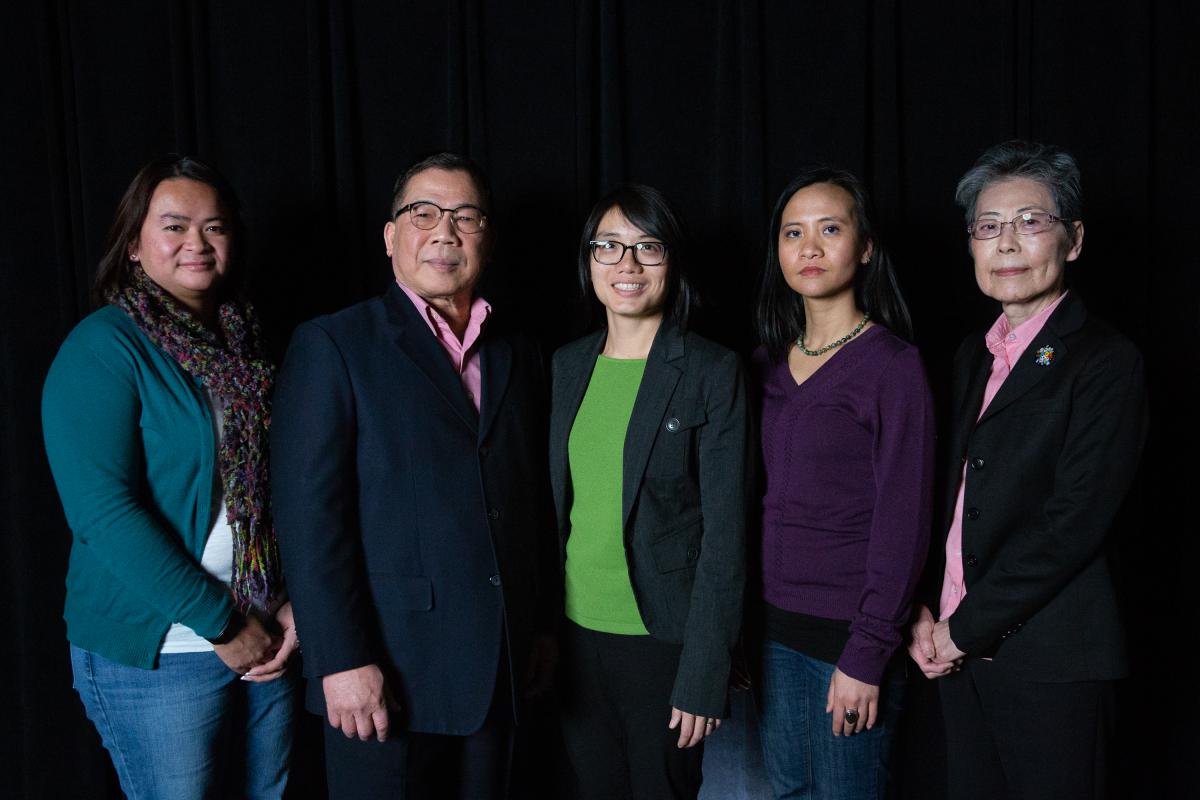The Lure Of Luck: How Gambling Can Turn Addictive For Southeast Asian Refugees

Mui Mui Hin-McCormick (at left) recruited the Asian Ambassadors a few years ago. They are Laotian elder Howard Phengsomphone, Vietnamese refugee Quyen Truong (center), Laotian refugee Sou Thammavong and Japanese immigrant Mari Merwin (at right). Photo by Ryan Caron King for Connecticut Public Radio
Quyen Truong still gets a cozy feeling when she sees a hand of cards.
It reminds her of family and traditions as a refugee from Vietnam who arrived in the U.S. in late 1990. Aunts, uncles and cousins in Connecticut — among the Southeast Asian refugees who resettled here in waves after the Vietnam War — would get together on weekends with rolls of quarters, nickels, pennies and dimes.
Card games lasted late into the night over several courses of traditional Vietnamese food. Children rooted for their parents.
And it was an honor, “a big deal,” said Truong, 35, a health care advocate in Hartford, “when your grandmother says, ‘Hey, do you want to play a hand with me?’”
The role of fortune and luck is big in some Asian cultures. Cards and dice games get woven into memories of baby showers, birthdays, weddings and funerals. As refugees in the U.S., Truong and others said, some of the most thrilling outings as a family are day trips to glitzy casinos that cater to Asian patrons with Asian cuisine, entertainment, translated signs and native Asian-speaking workers.
